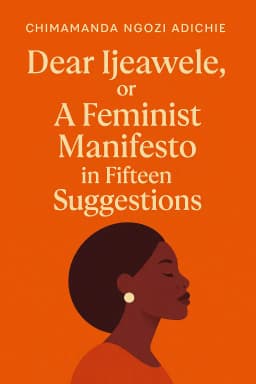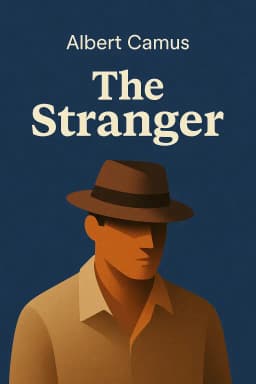
Kant: You Create Your Reality
Golden Hook & Introduction
SECTION
Michael: Alright Kevin, five words to review one of the densest books in history. Go. Kevin: My brain hurts. Send help. Michael: Perfect. Mine is: 'You create the world you see.' Kevin: Oh, I like that. It’s a little more optimistic than mine. Mine sounds like a cry for help after trying to read the first chapter. Michael: And that's the perfect entry into today's book, Immanuel Kant's Critique of Pure Reason. Kevin: The heavyweight champion of philosophy books. The one everyone says they've read but secretly just skimmed the Wikipedia page. It’s got this reputation for being notoriously difficult, almost unreadable for a normal person. Michael: It absolutely does, and the reputation is well-earned. But what's wild is that Kant, a lifelong academic who famously never traveled more than a few miles from his hometown of Königsberg, churned out this 800-page revolution in thought in just a few months when he was 57. Kevin: Wait, a few months? For a book that people spend years trying to understand? How is that even possible? Michael: I think it’s because he had this one, single, explosive idea that had been brewing for a decade, and he just had to get it out. It was an idea so profound he believed it would change philosophy forever. He called it his Copernican Revolution.
The Copernican Revolution: Flipping the Script on Reality
SECTION
Kevin: Okay, Copernican Revolution. I know that name. Copernicus was the guy who said the Earth revolves around the Sun, not the other way around. Michael: Exactly. For centuries, astronomers tried to make their models work with the Earth at the center. But the math got incredibly complicated and messy. They had to invent all these loops and epicycles to explain the planets' movements. It was a mess. Kevin: Right, it was a patch on top of a patch on top of a patch. Michael: Then Copernicus comes along and suggests something that seemed absurd at the time. He said, what if we're looking at it backwards? What if we, the observers on Earth, are the ones who are moving, and the Sun is at the center? He flipped the perspective. And suddenly, the math became simpler, more elegant. The universe made sense again. Kevin: That’s a great story. But what does that have to do with philosophy? Michael: Kant says that philosophy was stuck in the same rut as pre-Copernican astronomy. For thousands of years, philosophers had assumed that our knowledge must conform to objects. We have a mind, there’s a world out there, and our mind’s job is to create an accurate picture of that world. Kevin: That sounds… completely logical. Isn't that how it works? I see a coffee cup, my mind registers 'coffee cup.' The knowledge conforms to the object. Michael: That’s what everyone thought. But it leads to huge problems, especially with questions about things we can't directly experience, like freedom or justice. So Kant pulls a Copernicus. He says, let's try the opposite. What if, to be known, objects must conform to our cognition? Kevin: Hold on. Are you saying this table in front of me isn't real? That my mind is just inventing it out of thin air? That sounds like some kind of solipsistic nightmare. Michael: It’s more subtle and, I think, more brilliant than that. He’s not saying the table isn't out there. There is something out there. But the way we experience it—as a solid, brown, rectangular object existing in space and persisting through time—that structure is provided by our mind. Kevin: It’s kind of like our mind is running a piece of software, like an operating system. Michael: That's a perfect analogy! Think of it this way. The world provides the raw data—an incomprehensible stream of sensory information. But our mind is the operating system that takes that raw data and organizes it into a user-friendly interface: with a desktop, icons, windows. We experience the icons and the windows, not the raw code underneath. Kant is saying our minds come pre-installed with concepts like space, time, and causality. They are the software that structures reality for us. Kevin: So I’m not just a passive camera recording the world. I’m an active film director, imposing a structure, a narrative, a set of rules onto the raw footage. Michael: Precisely. You don't discover the laws of nature out in the world; your own reason imposes those laws onto the world so that you can understand it. That is the Copernican Revolution. It shifts the center of the universe from the external world to the internal structures of the human mind.
The Two Worlds: What We Can Know vs. What We Can't
SECTION
Kevin: Okay, I’m with you on the operating system analogy. So if my experience of the world is the 'user interface,' what is the raw data? What's the code running underneath it all? Michael: Ah, now you've hit on the second massive idea in the Critique. Kant gives these two things names. The world as it appears to us, the world processed through our mental operating system, he calls phenomena. This is the world of science, of experience, of everyday life. It's the world of tables, chairs, planets, and stars. Kevin: The user interface. Got it. So what's the other one? Michael: The other one, the world of the raw data, the thing as it is in itself before our mind gets to it, he calls noumena. And here's the kicker: the noumenal world is completely and utterly unknowable to us. Kevin: Whoa. So you're saying there's a true reality out there, but we can never, ever access it? It’s like we’re in The Matrix, but there’s no red pill to take. Michael: That’s a fantastic way to put it. The phenomenal world is our Matrix. It’s a consistent, real, predictable world governed by laws. It’s real for us. But it is not the ultimate, fundamental reality. The 'thing-in-itself'—the noumenon—is forever beyond our grasp. Kevin: But why? Why can't we just uninstall the software, or peek behind the curtain to see the code? Michael: Because the most fundamental aspects of our experience are part of the software itself. Think about space. You can't imagine something that doesn't exist in space. Now think about time. You can't imagine an event that doesn't happen in time. Kant argues that space and time are not features of the noumenal world; they are the fundamental lenses of our perception. They are part of the glasses we can never take off. Kevin: That’s a mind-bender. So even space and time are just part of my mental user interface. Michael: Exactly. And you can see why this was so controversial. Some of Kant's contemporaries read this and were horrified. One called his philosophy "all-destroying" because it seemed to take ultimate truth and lock it away in a box we can never open. It puts a hard, permanent limit on what human reason can ever hope to achieve. Kevin: Yeah, it feels a bit bleak. It’s like being told you’re living in a beautiful, intricate prison, but it's still a prison. You can explore every corner of your cell, but you can never get outside. Michael: It does feel that way at first. And that leads to the most important question of all, the one you’re probably thinking right now. Kevin: I am. This is a fascinating but also a hugely downer of an intellectual exercise. Why did Kant go to all this trouble just to prove we're stuck in a mental Matrix we can't escape? What was the point of it all?
Taming Reason to Make Room for Faith and Morality
SECTION
Michael: This is where the whole project clicks into place. The point wasn't to be a downer. Kant's ultimate goal was actually to save the things he thought were most important about being human: freedom, morality, and hope. Kevin: How does telling us we’re stuck in a mental prison save any of those things? It sounds like it does the opposite. Michael: Think about the big questions that science and pure reason struggle with. Can you prove that God exists? Can you prove that humans have free will? Can you prove the soul is immortal? Kevin: No, those are matters of faith. Science can't really touch them. Michael: Right. And in Kant's time, the Enlightenment, reason was becoming so powerful that it threatened to explain everything away. If every event is just a product of prior cause and effect, as science suggests, then where is there room for genuine freedom? If the world is just a machine, where is there room for God? Reason was becoming a bully, threatening to demolish the foundations of morality and religion. Kevin: Okay, I see the conflict. Science says everything is determined. Morality requires that we are free to choose. You can't have both. Michael: Exactly. So what Kant does is brilliant. By proving that pure, speculative reason is limited to the world of phenomena—the world of cause and effect, of space and time—he shows that it is fundamentally incapable of making judgments about the noumenal world. Kevin: The world where things like God or the soul or freedom would have to exist. Michael: Precisely. Reason can't prove that God exists, because God would be a noumenon, outside of space and time. But for the very same reason, it can never disprove God's existence either. He puts these concepts outside of reason's jurisdiction. He then delivers one of the most famous lines in all of philosophy. He says: "I have therefore abolished knowledge, to make room for belief." Kevin: Whoa. Let me process that. "Abolished knowledge to make room for belief." He’s not destroying reason. He’s building a fence around it. He's drawing a clear boundary line. Michael: Yes! He’s telling science and pure reason, "You are the absolute king of this entire phenomenal world. Investigate it, measure it, understand it. It is all yours." Kevin: "But," he continues, "you cannot cross this line. The territory of ultimate meaning, of morality, of freedom, of faith—that is off-limits to you. Your tools don't work here." It's a strategic move. A brilliant one, actually. Michael: It’s a grand compromise to save both. He secures the foundation for science to proceed without fear of religious dogma, and at the same time, he secures the foundation for morality and faith to exist without fear of being debunked by science. He creates a protected space for what it means to be human.
Synthesis & Takeaways
SECTION
Michael: So when you look at the whole project, it seems at first like an act of destruction. Kant is called the "all-destroyer." But it’s actually one of the most ambitious acts of construction in intellectual history. He’s building a secure, two-kingdom solution for the modern world. Kevin: One kingdom for the head, and one for the heart. Science gets the world of facts, and morality gets the world of meaning. And he builds an unbreachable wall between them so they can't go to war with each other. Michael: That's the perfect summary. He built a firewall for the human spirit. He used reason to show the limits of reason, all in an effort to preserve a space for the things that make life meaningful beyond just scientific explanation. It’s an incredibly profound and, I think, a deeply optimistic project. Kevin: It really is. It’s so much more than just a dry, academic text. It’s an attempt to solve one of the biggest conflicts of modern life. And it really makes you wonder, what are the 'invisible glasses' we're wearing today? The fundamental assumptions about reality that we don't even realize are shaping everything we see? Michael: A question that is just as relevant now as it was in 1781. Kevin: A perfect place to leave it. Michael: This is Aibrary, signing off.









